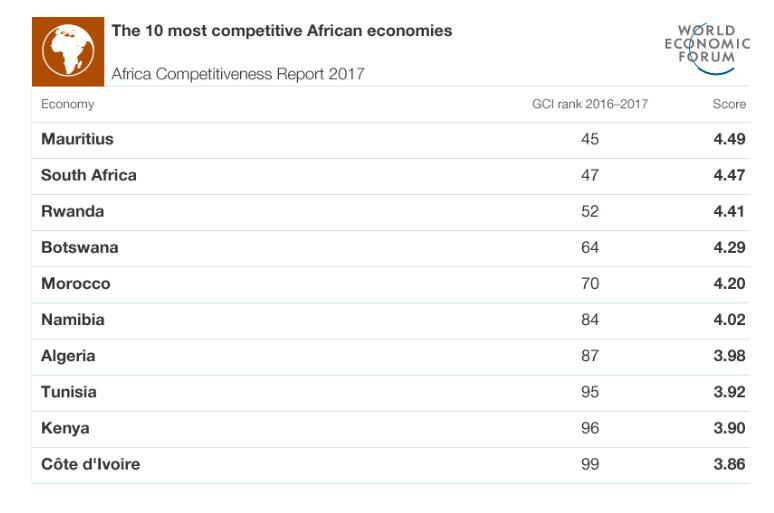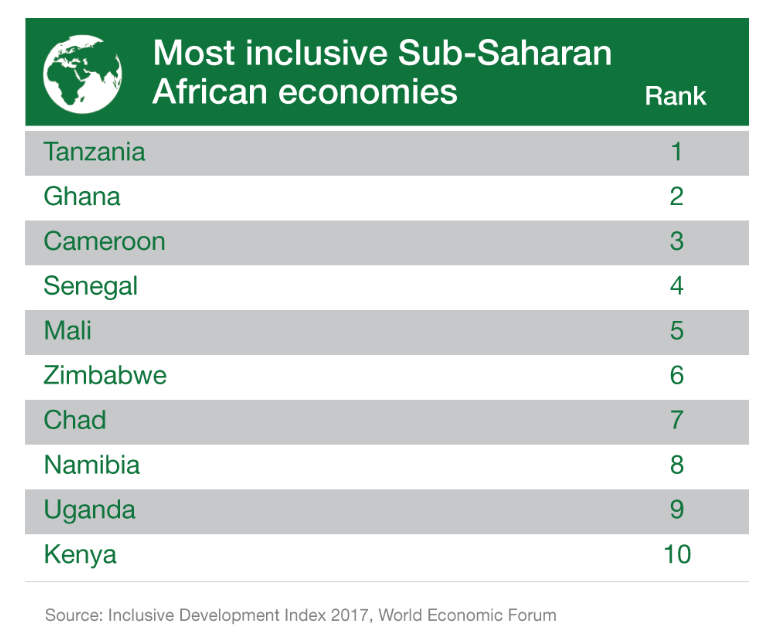The values of leadership and inclusive growth in Africa were writ large in a meeting that brought together over 1,000 leaders from more than 100 countries

“Youth are the nation. They will build it and rebuild it,” the artist and UNESCO Special Envoy told an audience in Durban, where he was speaking on the plight of South Sudan, a war-torn nation where the majority of people are under the age of 30. ”There is a passion and an energy that young people have that makes them a catalyst for change.”
by
Anna Bruce-Lockhart*
Here are some of the highlights from this year's World Economic Forum in Durban.
President Zuma calls for economic equality
“As leaders, we have not addressed adequately how we are going to close the gap between rich and poor in the world and achieve meaningful, inclusive growth,” South Africa’s President Jacob Zuma told participants in Durban.
The president also said that more needed to be done globally to combat “economic crimes” such as money-laundering and profit-shifting.
A three-point plan to end famine
Winnie Byanyima, Executive-Director of Oxfam, outlined the essential steps to avoid needless deaths from famine, as the continent faces concurrent crises in north-east Nigeria, South Sudan and Somalia.
First, governments had to put pressure on fighting groups and bring them to the table for peace. Second, fighting parties had to respect the rules of war and allow humanitarian workers to help people. And third, the international community must stop selling arms to conflict zones, and ensure that the aid it promises is actually delivered.
In the same session, Dyborn Charlie Chibonga, CEO of the National Smallholder Farmers’ Association of Malawi, said small farmers held the key to more resilient agriculture. “The future belongs to the organized,” he said. "We need to organize and scale up the ideas that are working on the African continent. That means scaling up small-holder farms as businesses.”
Addressing the problems of apartheid
South Africa’s recently appointed Finance Minister, Malusi Gigaba, outlined what he meant by a “radical transformation” of Africa’s biggest economy.
“We have not paid enough attention to developing a productive economy in the township and rural areas,” he said. “The special problems of the apartheid system have not been addressed sufficiently.” In this context, he said, “you must understand the impatience for speedy change, for significant change.”
Africa’s most competitive economies
Africa is brimming with brilliant, educated young people. In fact, with the number of working-age people expected to grow to 450 million over the next two decades, Africa's engines of job creation are struggling to keep up. The result could be a worsening crisis of youth unemployment.
According to the Africa Competitiveness Report 2017, published today, Africa needs to push forward structural reforms that boost productivity and create more opportunities. Some countries are already doing that better than others. Here’s a list of the top performers:

Does Africa have a 'leadership vacuum'?
Lindiwe Mazibuko, a South African politician and former leader of the opposition, thinks it does. In a session on leading in an era of disruption, she called for a new generation of leaders to do a better job of addressing the continent’s challenges.
“Africa has a leadership vacuum … the current crop of Africa’s leaders have failed to deliver, yet we’re asking what these same leaders can do to make it better.”
“We need a different line of understanding of what leadership in an African society is, beyond politics and business, into the non-profit, into civil society, into churches, schools, communities. We need to redefine leadership.”
Three ways to make rich Africa work for poor Africa
Elsie Kanza, the World Economic Forum’s Head of Africa, explains what inclusive growth means for Africa, and points to three priorities for leaders as they attempt to create fairer societies.
Winnie Byanyima, Executive Director of Oxfam and a Co-Chair of the meeting, also drew attention to growing inequality, and lambasted unfairness. “Those who pick up the tab of climate change are those who didn’t cause it,” she said.
Forest Whitaker on saving lives in South Sudan
“Youth are the nation. They will build it and rebuild it,” the artist and UNESCO Special Envoy told an audience in Durban, where he was speaking on the plight of South Sudan, a war-torn nation where the majority of people are under the age of 30. "There is a passion and an energy that young people have that makes them a catalyst for change."
The Whitaker Peace & Development Initiative trains young men and women to break the cycles of violence and oversee educational projects in their communities. You can watch the full press conference here, or find out more about the work of his foundation in this article.
Meet Africa's breakthrough female innovators
Despite the huge challenges Africa faces, it's hard to be pessimistic about the future when you read about the work of these six women.
Here's a look at how one of the winners, Oluwayimika Angel Adelaja, is tackling several problems at the same time: her city farms in shipping containers provide high-tech jobs in an area beset by youth unemployment, while offering a different way to grow food as climate change threatens conventional farming. Watch this session to find out more.
*Editor, World Economic Forum
**First published in www.weforum.org






 By: N. Peter Kramer
By: N. Peter Kramer

